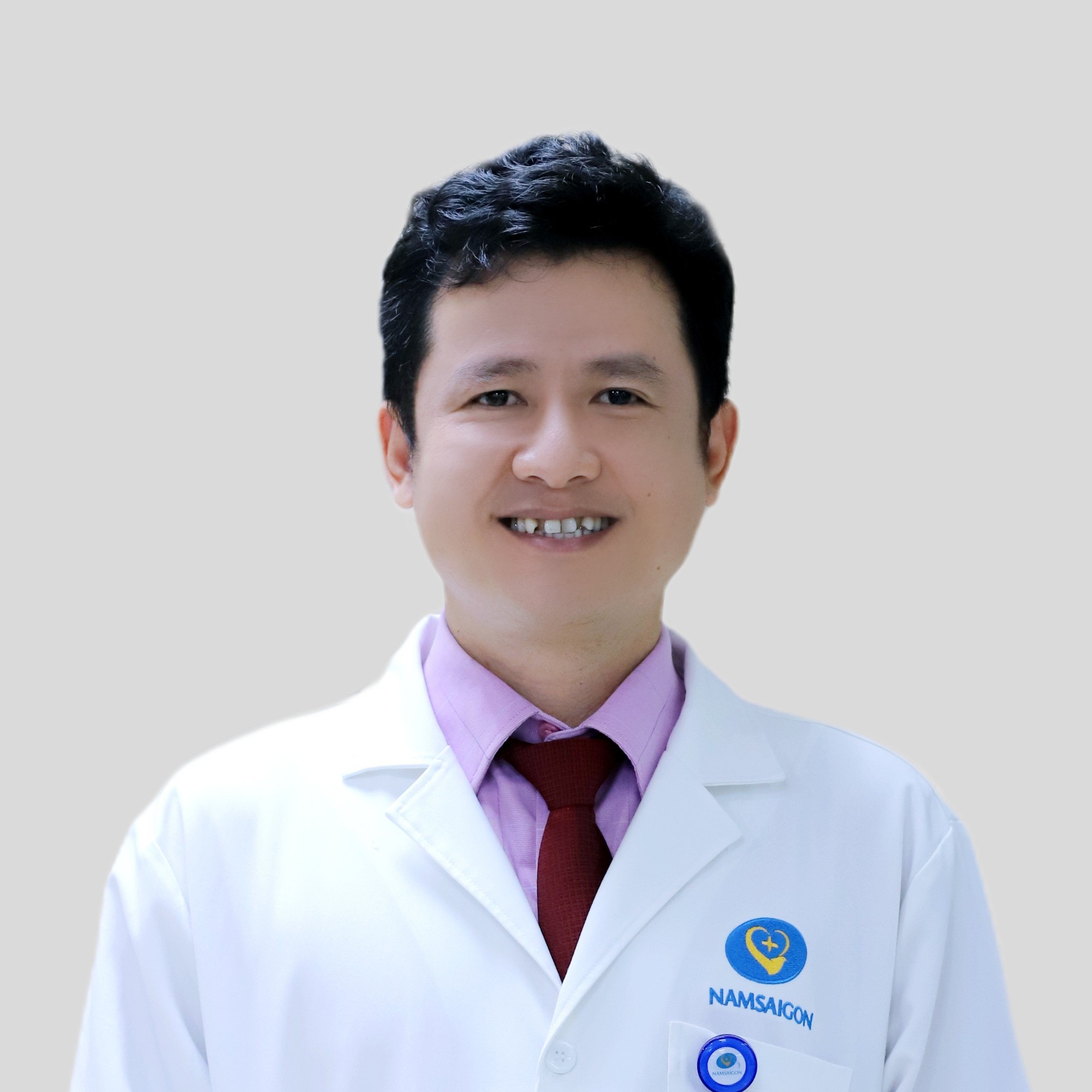MORE YOUNG ADULTS UNDERGOING HIP REPLACEMENT DUE TO AVASCULAR NECROSIS OF THE FEMORAL HEAD
-
Author: BỆNH VIỆN ĐA KHOA QUỐC TẾ NAM SÀI GÒN
-
11/06/2024
-
634
Avascular necrosis (AVN) of the femoral head is a serious condition that, if left untreated, can significantly reduce quality of life and lead to permanent disability. In recent years, the number of young patients diagnosed with this condition has risen sharply.
According to data from the Orthopedics & Traumatology Department at Nam Sai Gon International General Hospital, in the first quarter of 2024, 21,79% of hip replacement surgeries for femoral head necrosis were performed on patients under the age of 40. This figure is particularly alarming compared to previous statistics, which showed the condition was most commonly seen in patients aged 40 to 50. The recent rise in cases has been especially notable among male patients.
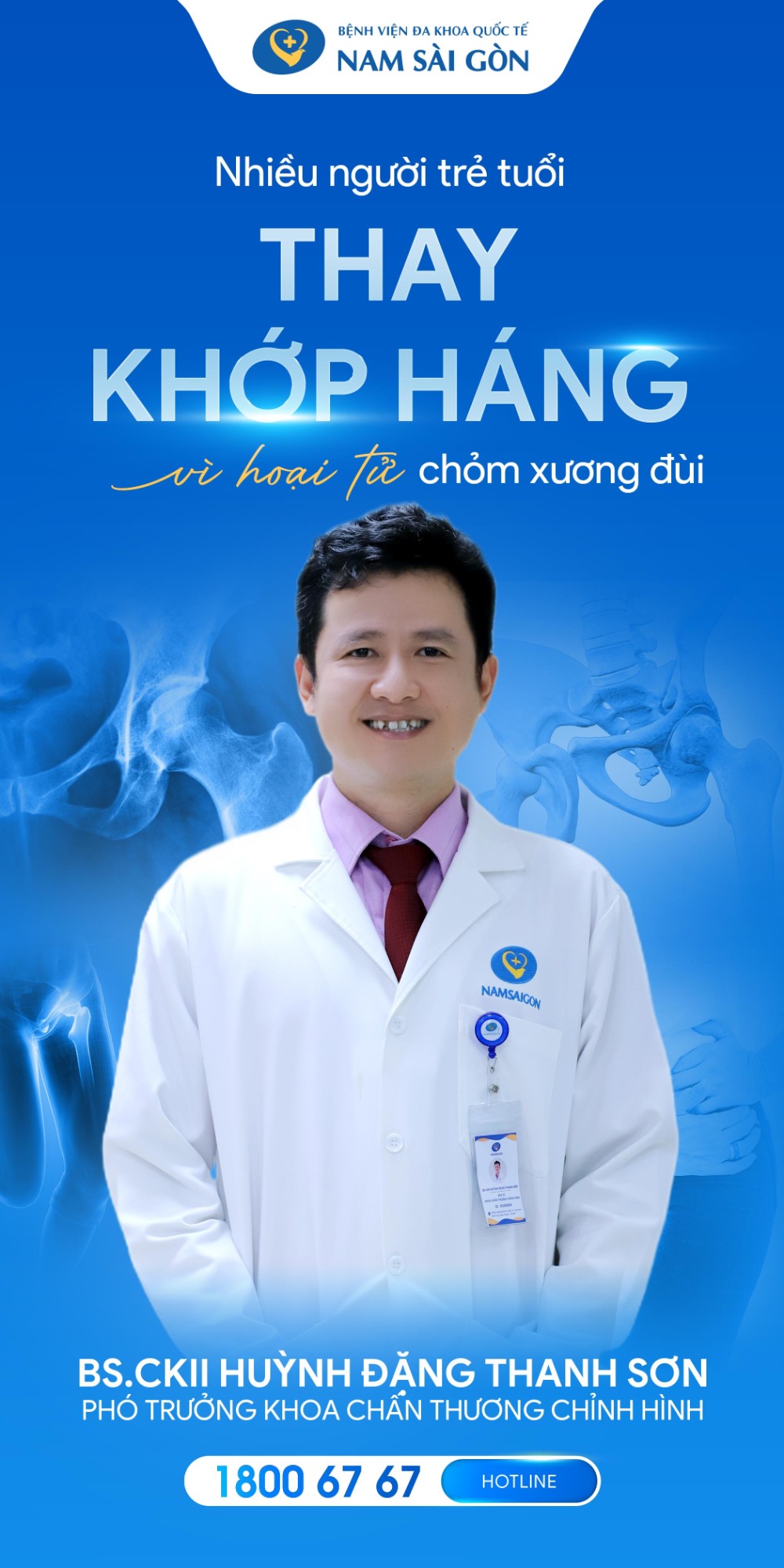
More Young Adults Undergoing Hip Replacement Due to Avascular Necrosis of the Femoral Head
Two representative cases were recently admitted to the Orthopedics & Traumatology Department and successfully underwent hip replacement surgery due to advanced avascular necrosis. Alarmingly, both patients were still young, yet the disease had already progressed to a severe stage.
Mr. L.P.V. (25 years old, from Dong Nai) works in a physically demanding job and initially dismissed his recurring hip pain, believing it would subside with rest and over-the-counter medication. When the pain worsened and became more persistent, he decided to visit Nam Sai Gon International General Hospital. After clinical assessment and diagnostic imaging, doctors confirmed severe hip joint degeneration caused by avascular necrosis of the femoral head, and recommended total hip replacement to restore function.
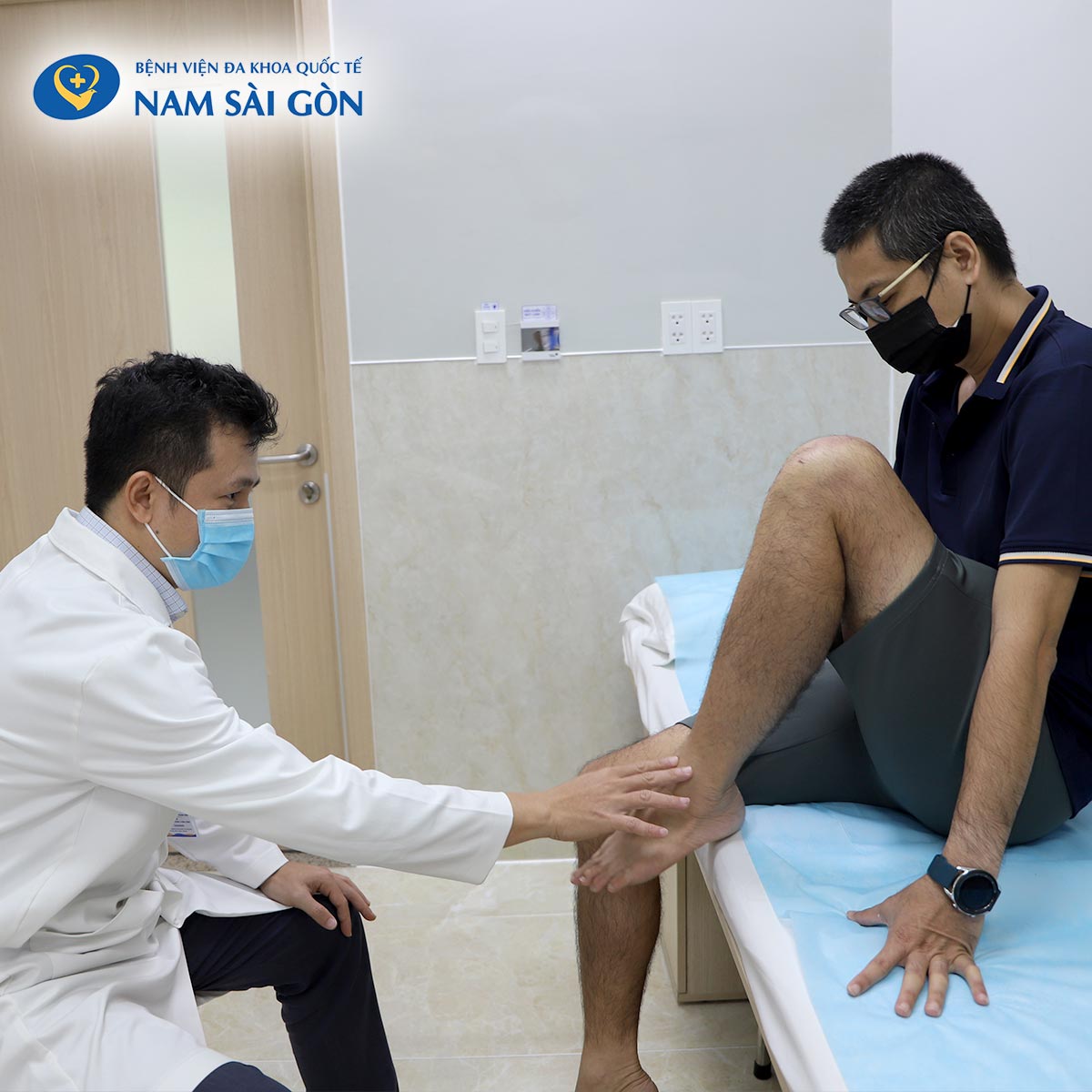
Similarly, Mr. L.V.B. (40 years old, from Binh Thuan), a car driver, had been suffering from bilateral hip pain for over six months. The discomfort worsened when he got in and out of his vehicle, making it impossible for him to ride a motorbike or even sit cross-legged while eating. He often had to support himself while sitting and experienced sleepless nights due to pain that intensified at night. The pain lessened with rest but returned with any physical activity. Despite taking many medications, his condition did not improve and eventually made walking nearly impossible. Upon examination, doctors diagnosed bilateral avascular necrosis, and surgery was necessary to restore his mobility.
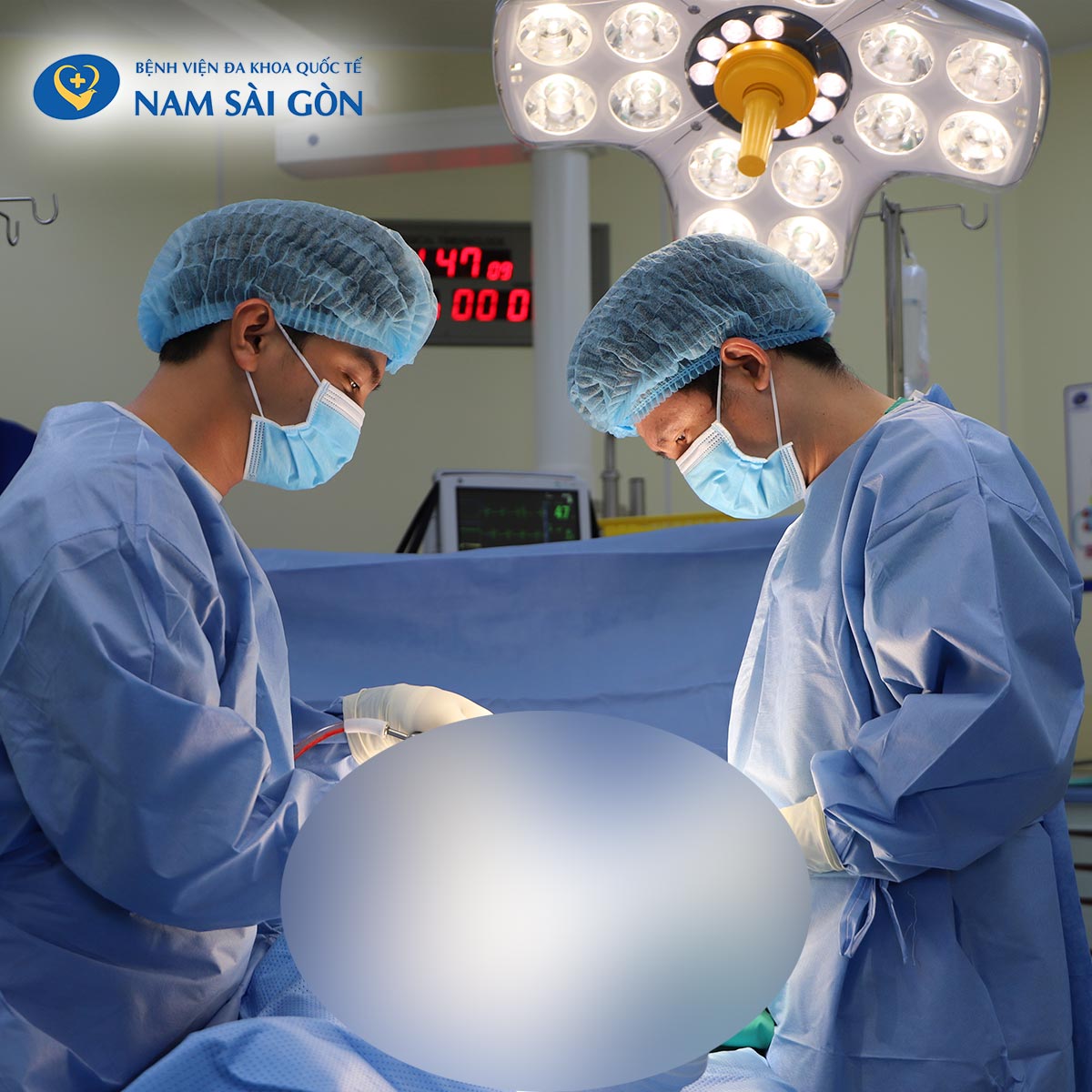
According to Dr. Huynh Dang Thanh Son, Specialist Level II, Deputy Head of the Orthopedics & Traumatology Department, primary AVN of the femoral head is most frequently seen in patients between the ages of 40 and 50, and is more common in men. However, an increasing number of patients under 30 now require hip replacement. AVN tends to progress silently, often without obvious symptoms until advanced joint degeneration occurs. At this stage, patients may require unilateral or bilateral hip replacement to regain mobility and resume normal activities. Early detection and surgical intervention are essential to preventing long-term disability.
Both patients recovered well following their surgeries. Mr. V., in particular, was able to walk without crutches just three days post-operation. They were monitored closely and received postoperative wound care at the hospital prior to discharge.
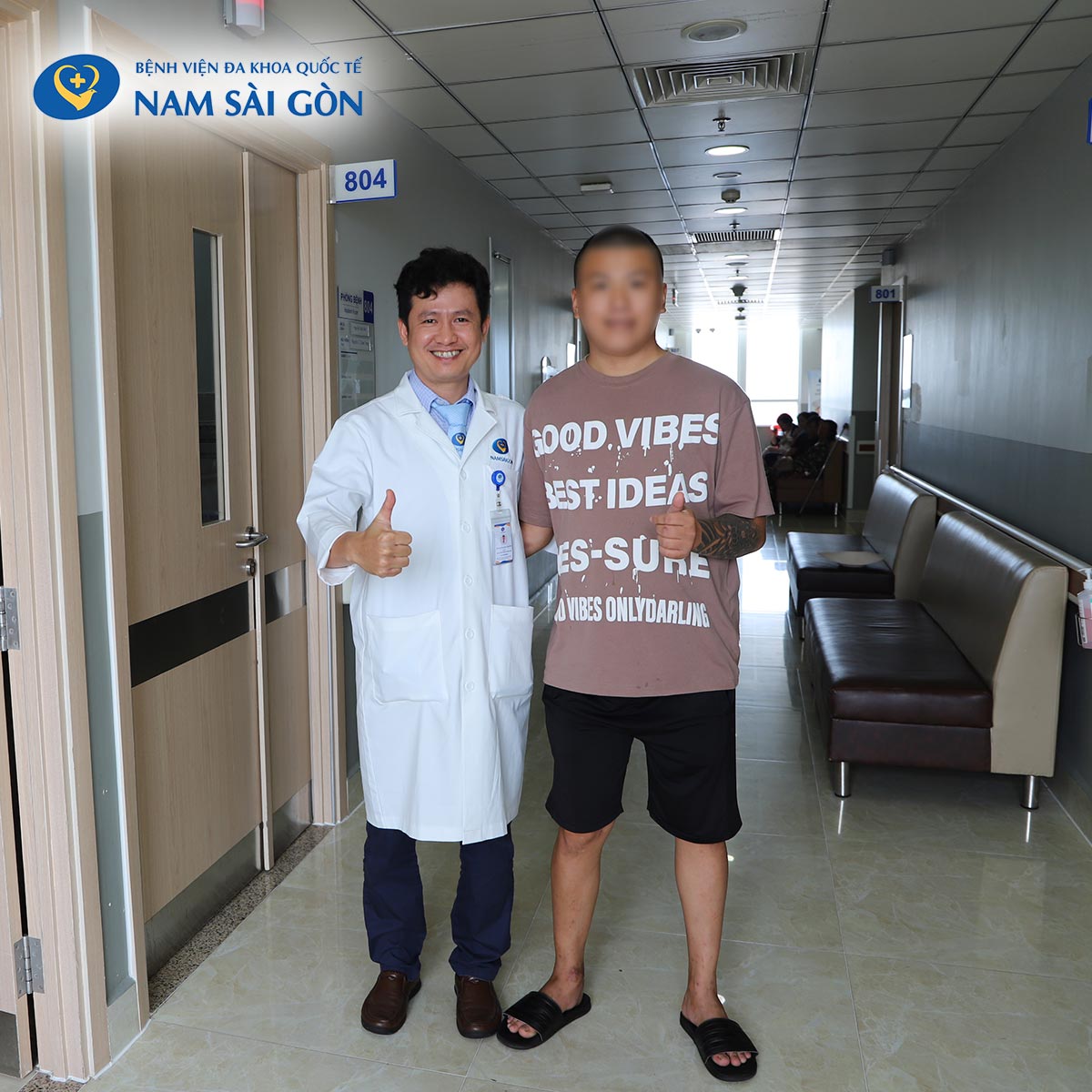
Dr. Thanh Son emphasized that surgery contributes only 50% to the success of a hip replacement. The remaining 50% depends on physical therapy and a structured rehabilitation program. Prior to discharge, Dr. Thanh Son and the hospital’s physiotherapy team provided patients with clear instructions on home-based recovery, including guidance on exercises and necessary adjustments to daily living. Depending on each patient’s recovery progress, they may need to prepare assistive tools such as raised toilet seats, grab bars in bathrooms, walking canes, bath stools, and specialized orthopedic footwear.
Early symptoms of femoral head necrosis may include occasional mild pain around the hip joint and restricted hip motion that makes squatting difficult. As the disease progresses, patients may experience persistent pain in the hip, buttock, or thigh area, worsening with activity and eventually even while at rest. In advanced cases, mobility becomes severely limited.
To schedule a consultation at Nam Sai Gon International General Hospital, please contact our hotline at 1800 67 67.
Nam Sai Gon International General Hospital
No. 88, Street No. 8, Trung Son Residential Area, Binh Hung Commune, Ho Chi Minh City.
Hotline: 18006767
info@nih.com.vn
Last updated: 08:54 19/11/2025

